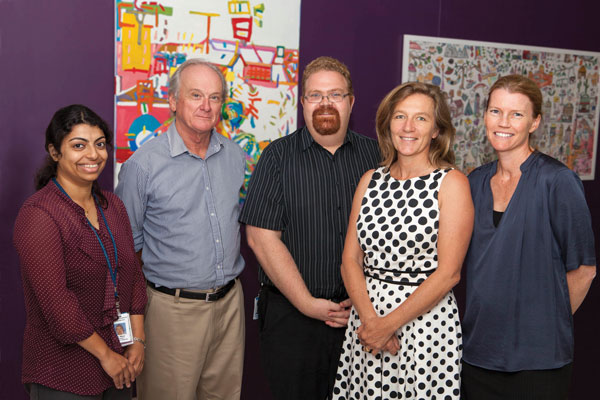Search
Research
Regular peaks and troughs in the Australian incidence of childhood type 1 diabetes mellitus (2000–2011).This study aimed to determine the incidence and incidence rate trends of type 1 diabetes mellitus in children aged 0–14 years...
Research
Glycaemic control of Type 1 diabetes in clinical practice early in the 21st century: An international comparisonImproving glycaemic control in people with Type 1 diabetes is known to reduce complications.
Research
Effect of antecedent moderate-intensity exercise on the glycemia-increasing effect of a 30-sec maximal sprint: a sex comparisonThis study investigated whether a prior bout of moderate-intensity exercise attenuates the glycemia-increasing effect of a maximal 30-sec sprint.
Research
Type 1 DiabetesA lifelong auto-immune condition that can affect anyone, but is most commonly diagnosed in childhood.

News & Events
Navigating the teenage years with type 1 diabetesThe teenage years can be a challenging time for families, a period made even more difficult if a child has type 1 diabetes.

News & Events
High hopes for preventing lowsResearchers led by the team at the Children’s Diabetes Centre at The Kids have taken a key step to a fully automated closed-loop insulin delivery system.
News & Events
30% of children at risk of future heart diseaseAlmost 30% of 14-year-old Australian children fall within a group identified as being at future increased risk of heart disease, type 2 diabetes or stroke
Research
Maternal smoking during pregnancy and the risk of childhood type 1 diabetes in Western AustraliaThe aim of this study was to investigate the association between maternal smoking during pregnancy and type 1 diabetes in the offspring, using complete...
Research
The effect of short-term use of the Guardian RT continuous glucose monitoring system on fear of hypoglycaemia in patients with type 1 diabetes mellitusThis study examines whether the short-term use of a continuous glucose monitor can reduce the fear of hypoglycaemia in individuals with type 1 diabetes...
Research
Type 2 Diabetes in Indigenous Australian childrenRates of type 2 diabetes are higher among Indigenous than non-Indigenous Australian children and adolescents.
